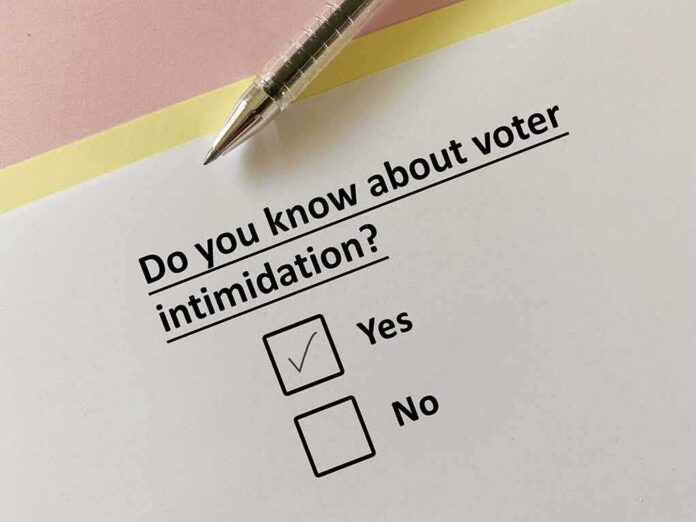
(LibertySociety.com) – During the 2020 election season, many voters were worried about the widespread presence of voter intimidation.
Voters must remember that voting is a right and that no voter should ever be intimidated as they prepare for the 2022 midterm elections. Everyone has the right to vote without fear of reprisal or intimidation, regardless of whether they cast their ballot in person, via the mail, or at an election dropbox.
Do not turn a blind eye to acts of voter intimidation. Listen to your intuition and use the tools at your disposal if you sense anything is wrong. In the event that voters encounter problems on Election Day, the community dedicated to protecting voters has organized nationwide initiatives to assist them.
Know that intimidating a voter is a federal offense that may land you in prison. The regulations pertaining to challenges differ from one state to the next, but in most states, one must have a reasonable justification for obstructing a voter’s ability to vote. Discrimination based on gender, color, ethnicity, or linguistic ability is not acceptable while making challenges.
It is the responsibility of election authorities to oversee elections at each polling location. On Election Day, poll workers should be able to consult with the municipal clerk for any guidance, supplies, or extra help they may need.
Dial 1(866) to reach the Election Protection Hotline.
Don’t hesitate to notify the county district attorney and board of elections in your area if you see something unusual.
After receiving a complaint of suspected infractions, each county commission must conduct an investigation and inform the district attorney, who is then authorized to bring criminal charges.
Refrain from confronting the perpetrator if you are a witness to voter intimidation. Doing so might further alienate the victim and send chills down the spines of other surrounding voters. The fear of escalating the situation to the point where the police get engaged is the primary motivation for refraining from addressing the intimidator.
False information on voting requirements or regulations is another kind of voter intimidation.
Also, speaking English or passing a test are not prerequisites for voting in any state.
Copyright, LibertySociety.com















